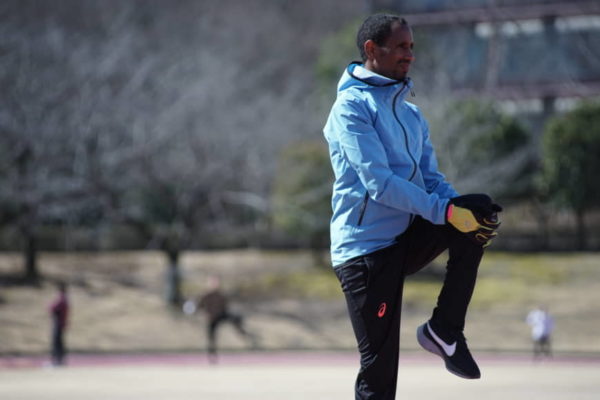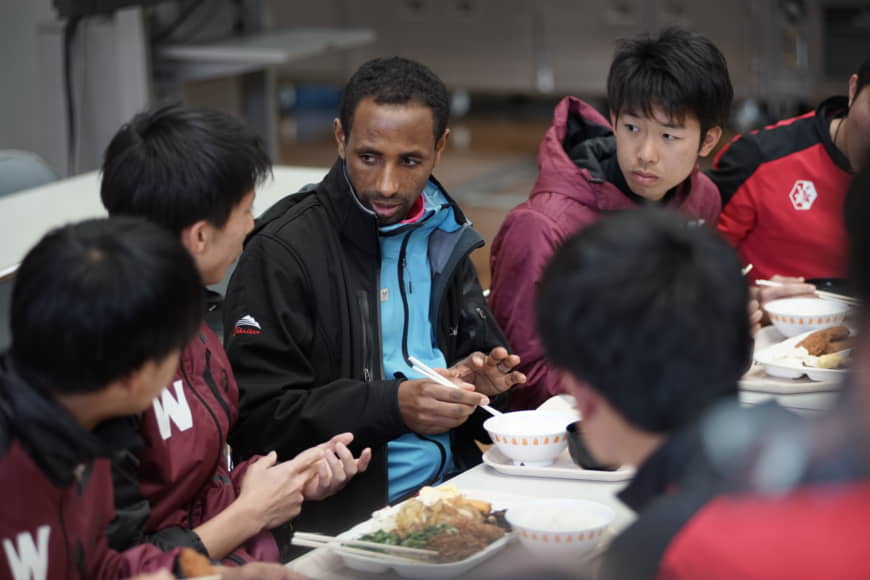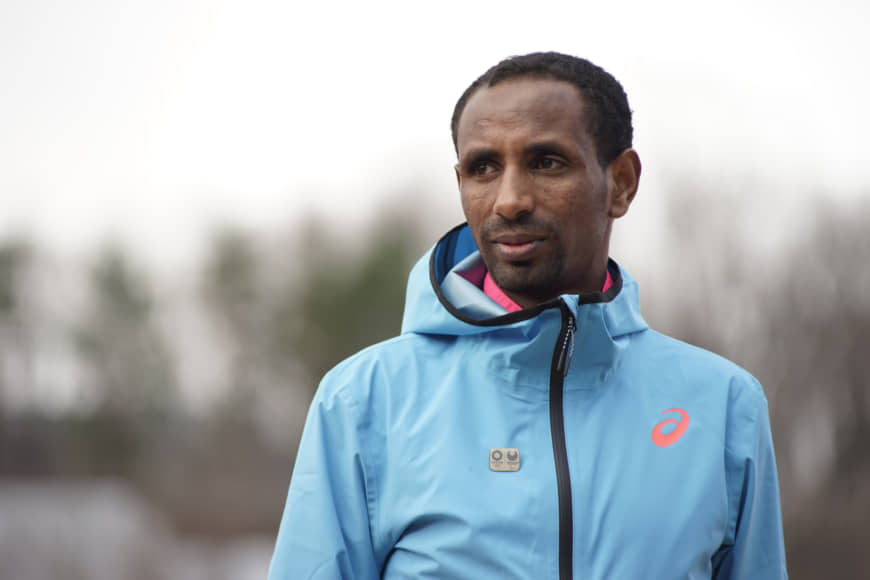
‘Stand with refugees,’ Ethiopian Olympian says ahead of Tokyo Marathon – The Japan Times
TOKOROZAWA, SAITAMA PREF. – Nobody chooses to become a refugee: This is what Yonas Kinde, a 39-year-old from Ethiopia, wants people in Japan to realize when they see him competing in the Tokyo Marathon on Sunday in his bid to qualify for the 2020 Olympics.
Kinde, who fled his country for political reasons and has been living in Luxembourg under international protection since 2013, competed at the 2016 Summer Games in Rio de Janeiro as a member of the inaugural Refugee Olympic Team.
He hopes to join the refugee team again for the Tokyo Games. The team will be announced in June.
“To become a refugee is not a choice. At any moment, at any time, everyone can (become) a refugee,” Kinde said. “There are a lot of challenges to find jobs, to travel … It’s not easy as a refugee. That’s why I’m asking the people in the world community to stand with refugees.”

Since landing in Japan on Tuesday, Kinde has been training for the Tokyo Marathon at Waseda University’s satellite campus in Tokorozawa, Saitama Prefecture.
On Thursday, he ran alongside long-distance runners from the university’s track and field team and later shared a meal with them.
For many of the students, it was the first time they had ever spoken to a refugee.
“I’m sure (Kinde) has experienced things that are unimaginable for someone like me,” said 21-year-old Hiroki Sumiyoshi.
As Sumiyoshi and his peers ate, Kinde shared stories from back home. He told them about an encounter he had with a pack of hyenas while he was running through a forest in Ethiopia.
“He said that was the fastest he’s ever run in his life, even to this day,” another student said with a laugh.

It was during the United Nations General Assembly in October 2015 — and at the height of a global refugee crisis — that International Olympic Committee President Thomas Bach announced the creation of the Refugee Olympic Team.
In March 2016, the IOC officially announced that a select number of elite athletes would compete in the Rio Games as Team Refugee Olympic Athletes, or Team ROA, in custom uniforms and under their own mutual flag. The 10 chosen to join hailed from Ethiopia, South Sudan, Syria and Congo, among other countries.
At the time, an estimated 68.5 million people in the world had been displaced. That number grew to 70.8 million in January 2019, according to the U.N. High Commissioner for Refugees.
UNHCR representative Dirk Hebecker said the Tokyo Marathon on Sunday is a “rehearsal for how the people of Japan are ready to welcome refugee athletes” when the 2020 Games kick off in July.
“The American team, the German team, the South African team will all come with their fans to cheer, but refugees won’t have anyone,” Hebecker said. “We need the people of Japan to cheer for the national team of Japan and please, please also cheer, a little bit, for all the refugees in the Refugee Olympic Team.”
Japan has long been criticized for its lackluster effort to take in refugees and asylum-seekers. In recent years, it has seen a sharp increase in applications for refugee status by people seeking jobs.

Japan accepts less than 1 percent of the world’s asylum-seekers despite being the fifth-largest donor to the U.N. Refugee Agency. In April 2019, a new Japanese law took effect that opened the door to more than 345,000 foreign laborers over the next five years to bolster industries struggling with labor shortages. A year before that, the government stopped letting asylum-seekers work while their applications were being processed.
According to the results of a government survey released in January, 54 percent of respondents think Japan is taking in a low number of refugees. But 56 percent said the government should be careful about taking in more as problems with crime and cultural assimilation might grow and increase the strain on public funds.
“Yonas has had his second chance in life,” Hebecker said, adding that the international community, UNHCR, the people of Japan and its government “have to do everything in their power to give all refugees and all displaced people that second chance.”